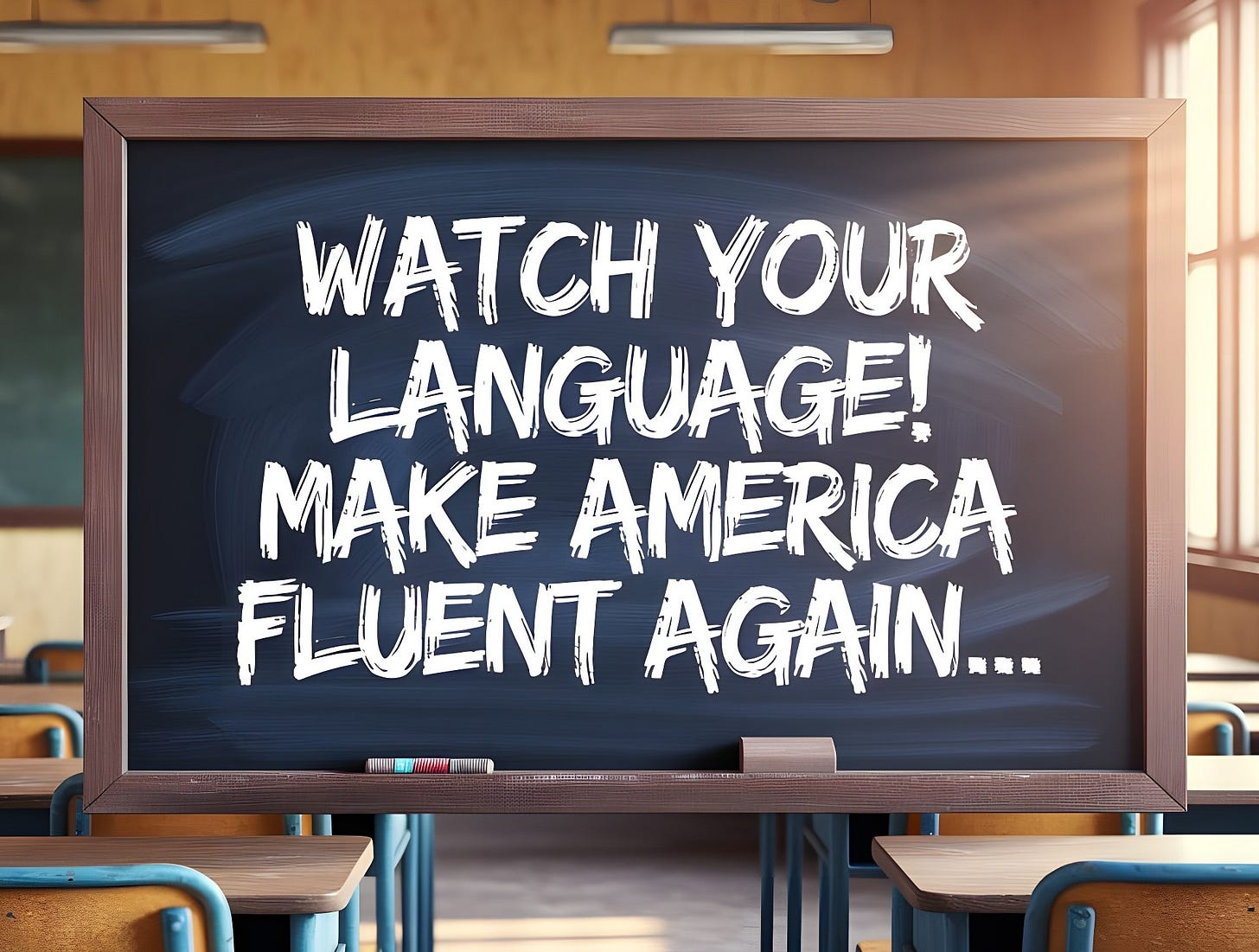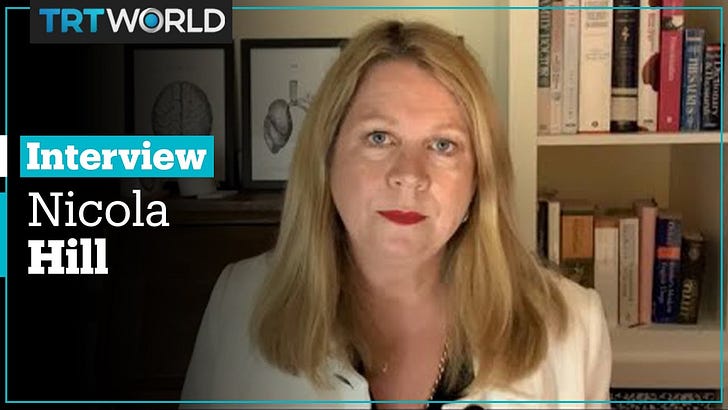The Impetus
I’ve been an editor—book, text, session legislative—for almost forty-five years, and I am sick to linguistic death of reading subliterate writing, from everyone and anyone and from every strata of society. Every speaker should innately know the importance of language, especially of their native language. In a nutshell: to communicate effectively.
I have misophonia, which I wrote about here:
👂🏼👂🏼👂🏼👂🏼🫷🏼🫷🏼🫷🏼🫷🏼 Hearing Americans misspeak causes me unendurable physical pain.
I kid you not, so I’m compelled to do my part to make it stop. Whereas thinking I can do so single-handedly is a bit megalomaniacal, I’m hoping that this series will seep into the American consciousness over time. Then when I’m called to reincarnate, I’ll be able to do so in the United States again with at least this one external irritant having been eliminated. (It’s true; I’m a lot of fun and extremely tolerant. 😉)
Editorial Background for the Upcoming Exercises
With some deviations by circumstance and from house-to-house, the overall progression from manuscript (MS or ms, plural MSS or mss) to bound book moves thusly: An author’s work with a publisher, be it a vanity press or established book publishing house, will usually begin with a collaboration between her1 and the acquisitions editor (the editor who acquired the book; i.e., gave the author a contract and who sometimes knows more about what will sell than about how to actually edit it). It’s the acquisitions editor who helps the author develop or improve whatever information, message, or thesis the manuscript will convey and, one hopes, coaxes the author to relate the content in a logical, ordered fashion and does not slough off that task, as sometimes happens. The more experienced an author is, the less work there will be for the acquisitions editor. After one or two cursory reads, the manuscript is considered ready to move on in the production process.
Copy editors (also referred to as line editors) are up next, and they are the last editorial stop before the designer finishes his work. From a content perspective, copy editors get the ms into its final form, ready for typesetting. To do so, copy and line editors scrutinize manuscripts line by line, hunting for errors in areas that include but are not limited to the following: grammar (especially agreement in number between subject and verb and verb conjugation); spelling; proper word usage and precise word choice; syntax; formation of the possessive case; pronoun choice and agreement; adjectival and adverbial forms; articles (the, a, an); cap or lowercase (UC or lc); text styling (italic, roman [in editorial parlance, roman sets with either an UC R or a lc one, like the F in “french fries”],2 or other forms of type); and consistency (in just about every way you can think of, which is why book editors make good script supervisors in the film industry). Copy editors also assign weight to headings (A head, B head, C head, etc.) and apply styles to them (centered, flush left, run in, U&lc, small caps or all caps, etc.) and to all the various elements of a book, from front matter elements to the body text to the back matter elements, and often including work on jacket and/or cover copy.
When we get to exercises for you to test your knowledge of and instinct for our native language—or your mastery of English as an additional language—you will be acting as a proofreader. Proofreaders must know what copy editors know in addition to knowing what to look for regarding all manner of typographical screwups that are relevent to a book set in type. But in this format, you’ll pretty much just be looking for errors, or not, in sentences and paragraphs and not such things as correctness of running heads, folios, and running feet.
The Tools of the Trade
Reputable publishers will look to The Chicago Manual of Style, 18/e CMOS 18 for guidance in all manner of recognized book publishing conventions. It’s an expensive tome, and I’ll be quoting passages/rules/sentences from it now and again. The Merriam-Webster suite of dictionaries, be they by subscription or the free-version site (if “Merriam” is missing from the URL or the landing page, the dictionary site is not the genuine article), are the way to go to check spelling and hyphenation in addition to definition.
Don’t discount the tools known variously as “a good ear,” sharp instincts, and exposure to a broad range of literature and reading material—especially the classics, which are universal and also introduce us to many “manners of speaking” (turns of phrase, language of an earlier age, and so on).
In the next post, we’ll get into specifics, with examples and exercises that test your knowledge of Standard American English. See you there!
PS It would help if you hit the thumbs-up icon, even if language isn’t your jam. Boosting this post will help it make its way to American English word and language nerds. It’s a small audience, so your effort would be all the more helpful. Thanks for reading! ~P. Generis
I’m randomly varying the personal pronouns between feminine and masculine.
Did you notice that parenthetical copy inside parentheses takes square brackets?





I am a word junkie and a grammar Nazi. I don't have the education to back it up but I was raised by a mom with impeccable grammar and such. I love words, and English was always my fav subject. I always aced my English classes and spelling etc., from kindergarten right up to high school.
Reading, reading, reading as a child, into adulthood anything I could get my eyes on. The cereal box or the shampoo bottles it didn't matter.
My kids grew up with the thirty minutes rule. Read anything. A comic book or a novel before bed for that time.
They are now instilling that rule upon their children. 💖
One of my pet peeves (I have many) is the writing of numbers less than (what is it? 100 or 1000?) a certain amount as numerals and not spelled out. I always write them out from one to ninety nine. Unless I'm being a lazy jerk, and I hate myself afterward 🤣